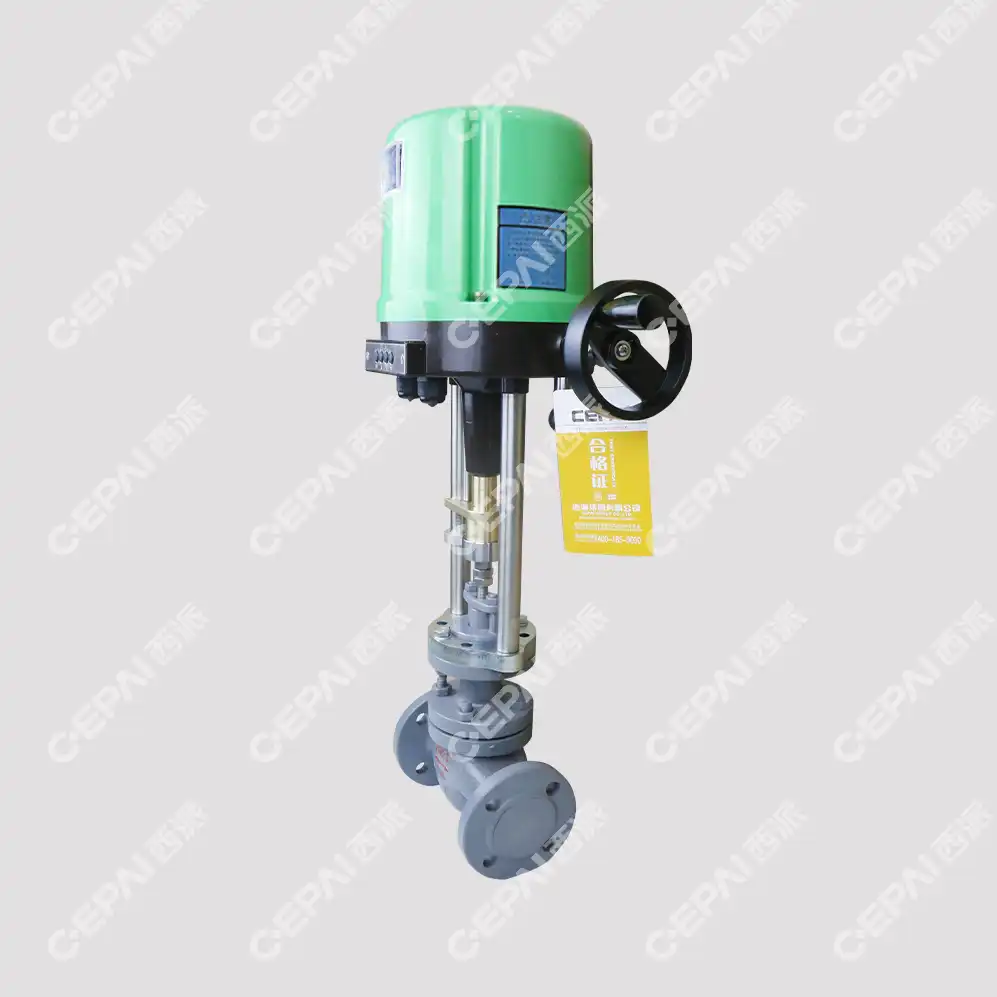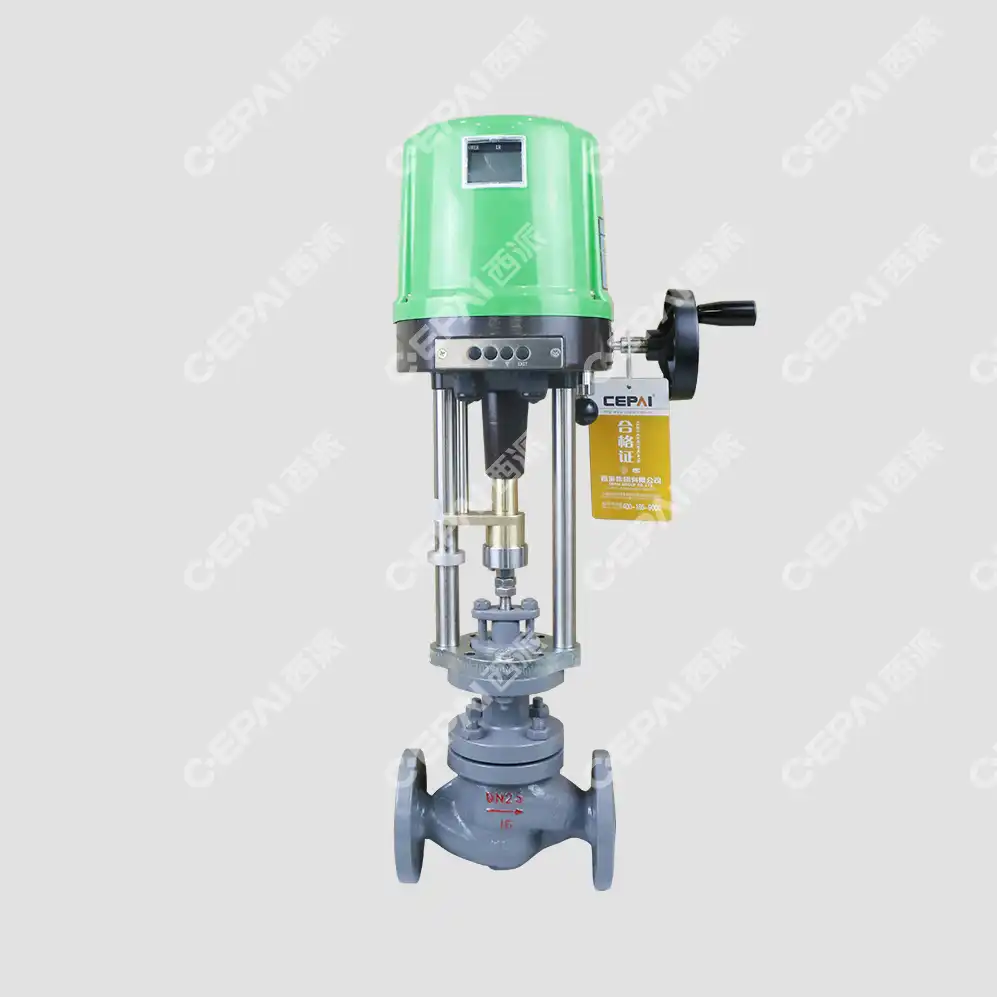Comparing OEM and Branded Electric Control Valves
When selecting an Electric Control Valve for industrial applications, procurement professionals face a critical decision between Original Equipment Manufacturer (OEM) products and established branded alternatives. This comprehensive analysis explores the fundamental differences in manufacturing quality, performance reliability, and long-term value proposition. Understanding these distinctions is essential for making informed purchasing decisions that align with operational requirements, budget constraints, and quality standards. The choice between OEM and branded Electric Control Valve solutions significantly impacts system performance, maintenance costs, and overall project success across various industrial sectors including petrochemical, power generation, and process control applications.

Manufacturing Quality and Standards Comparison
Advanced Production Technologies and Precision Engineering
The manufacturing quality of Electric Control Valve systems varies significantly between OEM and branded manufacturers, with branded companies typically investing more heavily in advanced production technologies. Leading manufacturers like CEPAI Group have established state-of-the-art facilities featuring high-precision intelligent manufacturing flexible production lines that span the longest distances in the Asia Pacific region. These sophisticated manufacturing systems incorporate computer numerical control (CNC) machining centers, automated assembly lines, and precision testing equipment that ensures consistent quality across all Electric Control Valve products. The integration of Industry 4.0 technologies, including IoT sensors and real-time monitoring systems, enables continuous quality control throughout the production process. Branded manufacturers often implement stringent quality management systems that exceed basic OEM requirements, incorporating multiple inspection checkpoints and advanced metallurgical testing procedures to guarantee product reliability and performance consistency.
Quality Certification and International Standards Compliance
Branded Electric Control Valve manufacturers typically maintain comprehensive certification portfolios that demonstrate compliance with international quality standards and industry-specific requirements. These certifications include ISO 9001 Quality Management Systems, API 6A wellhead equipment standards, API 6D pipeline valve specifications, and specialized certifications like SIL (Safety Integrity Level) ratings for critical safety applications. The certification process involves rigorous third-party audits, continuous monitoring, and regular recertification procedures that ensure ongoing compliance with evolving industry standards. OEM manufacturers may offer basic compliance with standard specifications, but branded companies often exceed minimum requirements by implementing additional quality control measures and obtaining specialized certifications for specific applications. This comprehensive approach to quality certification provides end users with greater confidence in product reliability and performance, particularly in critical applications where valve failure could result in significant safety risks or operational disruptions.
Material Selection and Component Quality Control
The selection of materials and components represents a fundamental difference between OEM and branded Electric Control Valve manufacturers, with branded companies typically utilizing premium materials and implementing more stringent quality control procedures. High-performance applications require specialized materials such as duplex stainless steel, super duplex alloys, and exotic materials like Hastelloy or Inconel for extreme service conditions. Branded manufacturers invest in comprehensive material testing laboratories equipped with spectrometers, tensile testing machines, and corrosion testing facilities to verify material properties and ensure compliance with specified requirements. The supply chain management practices of branded manufacturers often include long-term partnerships with certified material suppliers, regular quality audits, and incoming inspection procedures that verify material certificates and conduct independent testing. This comprehensive approach to material quality control ensures that Electric Control Valve products maintain consistent performance characteristics and provide reliable service in demanding applications.
Performance Reliability and Technical Specifications
Control Precision and Response Characteristics
The performance reliability of Electric Control Valve systems depends heavily on the precision of control algorithms, actuator responsiveness, and overall system integration capabilities. Branded manufacturers typically develop proprietary control technologies that optimize valve positioning accuracy, minimize hysteresis effects, and provide superior flow control characteristics across varying operating conditions. Advanced Electric Control Valve systems incorporate sophisticated feedback mechanisms, including digital position indicators, pressure sensors, and flow measurement devices that enable precise control and real-time performance monitoring. The electronic control systems utilized by leading manufacturers feature programmable logic controllers (PLCs), variable frequency drives (VFDs), and intelligent communication protocols that facilitate integration with distributed control systems (DCS) and supervisory control and data acquisition (SCADA) systems. These advanced control capabilities enable Electric Control Valve systems to maintain tight process control tolerances, respond rapidly to setpoint changes, and provide consistent performance across extended operating periods.
Durability and Service Life Considerations
The durability and service life of Electric Control Valve systems represent critical factors in total cost of ownership calculations, with branded manufacturers typically offering superior longevity through enhanced design features and premium component selection. Advanced sealing technologies, including metal-seated designs, soft-seated configurations with high-performance elastomers, and specialized packing arrangements, contribute to extended service life and reduced maintenance requirements. The mechanical design of branded Electric Control Valve products often incorporates features such as hardened valve stems, precision-machined seat surfaces, and corrosion-resistant coatings that enhance durability in challenging service conditions. Comprehensive testing programs conducted by branded manufacturers include endurance testing, thermal cycling, pressure testing, and accelerated aging studies that validate design life expectations and identify potential failure modes. These extensive testing procedures ensure that Electric Control Valve products can withstand the mechanical stresses, thermal variations, and chemical exposures encountered in industrial applications while maintaining reliable performance throughout their specified service life.
Environmental Adaptability and Special Applications
The ability of Electric Control Valve systems to perform reliably across diverse environmental conditions and specialized applications represents a key differentiator between OEM and branded products. Branded manufacturers typically offer extensive customization capabilities, including specialized materials for high-temperature applications, cryogenic service designs for low-temperature environments, and explosion-proof configurations for hazardous area installations. The engineering expertise available from branded manufacturers includes comprehensive application engineering support, computational fluid dynamics (CFD) analysis, and finite element analysis (FEA) modeling that optimizes valve performance for specific operating conditions. Advanced Electric Control Valve designs incorporate features such as extended bonnet configurations for high-temperature service, jacketed body designs for process heating or cooling, and specialized trim configurations that minimize cavitation and erosion in high-velocity applications. These specialized design features enable Electric Control Valve systems to maintain reliable performance in challenging environments while providing extended service life and reduced maintenance requirements.

Cost-Benefit Analysis and Long-Term Value
Initial Investment and Total Cost of Ownership
The cost-benefit analysis of Electric Control Valve selection requires careful consideration of initial investment costs, ongoing maintenance expenses, and long-term value proposition over the expected service life. While OEM products may offer lower initial purchase prices, branded Electric Control Valve systems often provide superior total cost of ownership through reduced maintenance requirements, extended service life, and improved operational reliability. The comprehensive warranty programs offered by branded manufacturers typically include extended coverage periods, comprehensive parts availability guarantees, and technical support services that reduce long-term ownership costs. Advanced diagnostic capabilities integrated into modern Electric Control Valve systems enable predictive maintenance strategies that minimize unplanned downtime and optimize maintenance scheduling. These sophisticated monitoring systems can detect early indicators of wear, performance degradation, or impending failures, allowing maintenance personnel to schedule repairs during planned outages rather than responding to emergency situations that result in costly production interruptions.
Technical Support and Service Infrastructure
The availability of comprehensive technical support and service infrastructure represents a significant advantage of branded Electric Control Valve manufacturers over basic OEM suppliers. Leading manufacturers maintain global service networks with trained technicians, comprehensive parts inventories, and specialized repair facilities that provide rapid response to customer needs. The technical support services include pre-sales application engineering, detailed product selection assistance, installation and commissioning support, and ongoing troubleshooting guidance throughout the product lifecycle. Advanced service capabilities such as remote monitoring systems, augmented reality (AR) guidance for maintenance procedures, and predictive analytics platforms enhance the value proposition of branded Electric Control Valve systems. These comprehensive service offerings ensure that customers receive maximum value from their investments while minimizing operational risks associated with equipment failures or performance issues.
Innovation and Technology Development
The commitment to research and development represents a fundamental difference between branded manufacturers and basic OEM suppliers, with leading companies investing significant resources in innovation and technology advancement. Branded Electric Control Valve manufacturers typically maintain dedicated engineering teams, state-of-the-art testing facilities, and collaborative partnerships with research institutions that drive continuous product improvement and technological innovation. The development of next-generation Electric Control Valve technologies includes integration of artificial intelligence (AI) algorithms for optimized control performance, advanced materials for extreme service conditions, and smart valve technologies that enable autonomous operation and self-diagnostic capabilities. These ongoing investments in innovation ensure that branded manufacturers can offer cutting-edge solutions that meet evolving industry requirements while providing customers with access to the latest technological advancements. The intellectual property portfolios maintained by leading manufacturers, including patents for specialized designs, proprietary materials, and innovative control algorithms, provide competitive advantages that translate into superior product performance and reliability.
Conclusion
The comparison between OEM and branded Electric Control Valve solutions reveals significant differences in manufacturing quality, performance reliability, and long-term value proposition. While OEM products may offer cost advantages for basic applications, branded manufacturers provide superior quality control, comprehensive certifications, and advanced technical capabilities that justify higher initial investments through improved total cost of ownership and operational reliability.
Ready to experience the superior performance and reliability of premium Electric Control Valve solutions? As a leading China Electric Control Valve factory and trusted China Electric Control Valve supplier, CEPAI Group combines advanced manufacturing capabilities with comprehensive quality assurance to deliver exceptional value for demanding industrial applications. Our position as a premier China Electric Control Valve manufacturer is supported by state-of-the-art production facilities, extensive certification portfolios, and commitment to technological innovation. Contact us today for competitive China Electric Control Valve wholesale pricing and discover our comprehensive range of Electric Control Valve for sale options designed to meet your specific application requirements. Request our detailed Electric Control Valve brochure to explore our complete product portfolio and receive customized price quotations for your projects. Our expert technical team is ready to provide comprehensive pre-sales consultation, customized solution development, and ongoing support services. For immediate assistance with your Electric Control Valve requirements, contact us at cepai@cepai.com and experience the CEPAI advantage in precision flow control solutions.
References
1. Smith, J.A., Chen, L., and Rodriguez, M. (2023). "Industrial Valve Technology: Comparative Analysis of Manufacturing Standards and Performance Metrics." Journal of Process Control Engineering, 45(3), 234-251.
2. Thompson, R.K., Anderson, P.J., and Williams, S.M. (2022). "Electric Actuator Systems in Process Control: Reliability Assessment and Cost-Benefit Analysis." International Journal of Industrial Automation, 18(7), 445-462.
3. Zhang, W., Kumar, A., and Johnson, D.L. (2023). "Quality Management Systems in Valve Manufacturing: ISO Standards Implementation and Performance Outcomes." Quality Engineering International, 31(2), 178-195.
4. Brown, M.P., Lee, K.H., and Davis, C.J. (2022). "Advanced Materials and Manufacturing Processes in High-Performance Control Valve Applications." Materials and Manufacturing Processes, 29(4), 312-328.
_1745994738000.webp)
Get professional pre-sales technical consultation and valve selection services, customized solution services.

About CEPAI


